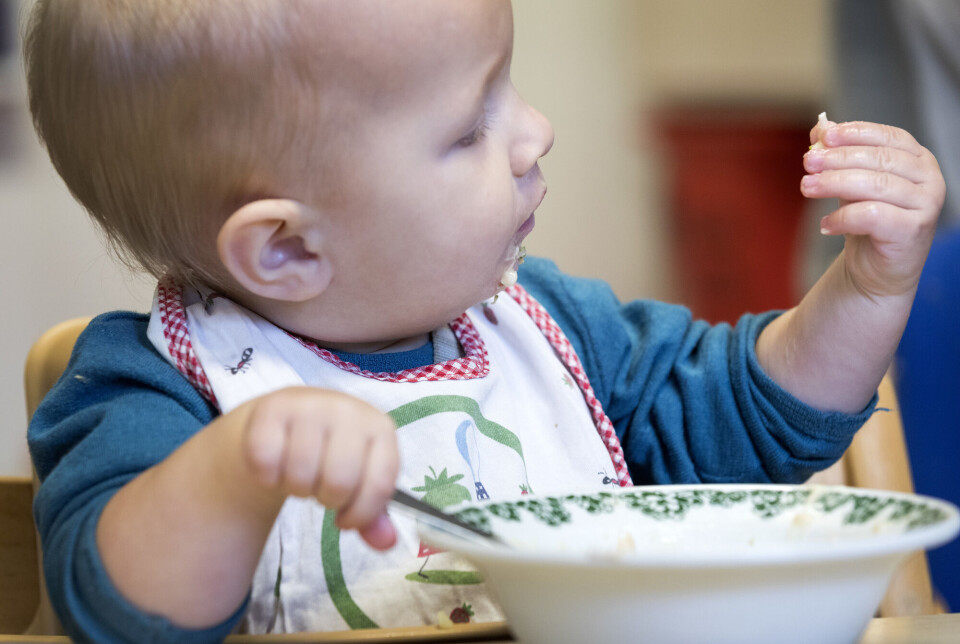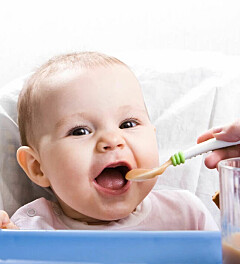
Why are some people so picky when it comes to food?
ASK A RESEARCHER: Some people pick at their food and don't like fish and vegetables. What's the problem?
Being a picky eater means that you have strong preferences for the foods you are willing to eat. But why are some people so picky? And what significance does it have?
Birger Svihus studies nutrition in humans and domestic animals at the Norwegian University of Life Sciences (NMBU). He believes an important reason why people are picky is that they have not been taught to appreciate food from an early age by parents and other adults.
Svihus described an experiment that was carried out on pregnant women, where some of them drank carrot juice every day during or after pregnancy, and some did not.
After the babies were born, they offered carrots. It turned out that the babies born to women who drank carrot juice liked carrots better than the babies born to women who didn't drink carrot juice.
“This illustrates the importance of being exposed to new tastes by having experienced the taste at an early age,” says Svihus.
The experiment Svihus described was carried out by American researchers in 2001, and was published in the journal Pediatrics.
Parents' food choices
Svihus believes that parents' food choices and attitudes towards food are of great importance.
“Some types of food, such as vegetables, can have flavours that children react negatively to. One theory as to why children react like this to some vegetables is that the reactions are a warning from the body that the foods may be poisonous or harmful, even if they really are not,” Svihus said.
He believes that if parents are always positive about trying new things, this attitude will rub off on the children.
“Small children imitate others. If the parents say ‘Oh, it’s so much fun with new food! I can't wait to taste it’, this can have a lot to say in teaching children to like food and not be picky,” Svihus said.

Too much choice
Annechen Bahr Bugge is a researcher at Oslo Metropolitan University (OsloMet) and studies issues related to food and eating habits.
“I think what we today call pickiness comes from the fact that many of us live in welfare societies. We can pick and choose as we like from the top shelf and have no restrictions on what kind of food we can choose to say no to,” Bugge said.
She agrees with Svihus that parents have a great influence on their children's diet, and that if the parents are positive about trying new foods, then their children can be too.
“We allow children to be picky when restaurants offer children's menus with only fries, hot dogs and chicken when there is actually other food on the menu that they might like,” Bugge said.
In 2020, Bugge studied the eating and drinking patterns of children and young people. Both parents and children were asked whether the children were picky eaters, how often they ate different types of food such as fish, cereals and dairy products and whether they helped with cooking.
“That research project suggested that children who are involved in cooking are less picky,” Bugge said.
She thinks it may have something to do with the fact that the children saw how everything was prepared and felt that they had control over what was in the various dishes.

Can become an eating disorder
Bugge believes that being picky is being able to choose one type of food for another, preferred type of food.
“In certain cases, this can border on an eating disorder. There is an eating disorder called orthorexia, which means that you have an unhealthy obsession with eating the right food, and can be similar to the mindset of a person we choose to call a picky eater,” Bugge said.
Orthorexia is often called ‘the fourth eating disorder’. It is not an official diagnosis, but the common denominator of anorexia, bulimia and orthorexia is that you allow food to play such a large role in your life that you let it rule your life and social situations.
Eating disorders are dealing with difficult emotions
Hilde Berit Moen studies eating disorders at Nord University. She says that being a picky eater and having an eating disorder are two completely different things.
“Being picky means that you stop eating food because you don't like the food, whereas if you have an eating disorder, you deal with difficult emotions through food and your body, for example by eating too little or overeating,” Moen said.
She points out that there are diagnoses that involve a type of pickiness that can be reminiscent of eating disorders, but which are not.
“Restrictive food intake is a diagnosis that more children than adults get. If you have that diagnosis, it is perhaps because you are picky and it leads to you not getting enough nutrition, which is harmful. It is still important to note that being a picky eater is not an eating disorder,” Moen said.
Advice for people with picky children
In an article on Norwegian SciTech News, Silje Steinsbekk, professor of psychology at NTNU, gives advice to parents with picky children.
Here are some of her tips:
1. Children should never be forced to eat, but they should be encouraged to taste.
2. To be able to tell whether you like a dish or not, you have to taste it at least 10 to 15 times.
3. Parents can influence pickiness and must be sensitive. The key ideas are lots of warmth, but also structure and clear boundaries.
4. Some people can outgrow their pickiness.
5. Play with your food and create curiosity!
6. Take advantage of the fact that the child is hungry.
Translated by Nancy Bazilchuk
———
Read the Norwegian version of this article at forskning.no

































